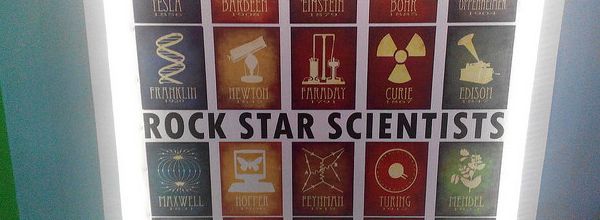For beginning PhD students, few things evoke a sense of mild dread more than the Qualifying Exam. Qualifying Exams differ among the many schools and programs throughout the USA but, generally, they act as a turning point to advance a graduate student into a PhD candidate.
In most other countries, there is no Qualifying Exam as such, but much of the advice contained in this article will be useful for helping you to negotiate any major step in your PhD program, including the final thesis defense.
My exam was oral and covered both my research proposal and coursework.
I was one of those graduate students who trembled at the thought of this intimidating hurdle, but preparing for the exam forced me to a higher level of performance in mastering general knowledge of my subject, designing experiments, and communicating my ideas.
Here are some tips that helped me (and others) to not just pass their Qualifying Exam, but prosper because of it.
Regarding Your Qualifying Exam Committee
1. Know your Qualifying Exam committee. For each committee member, identify their area of expertise and what classes they teach.
Consult other grad students who work with them, have taken classes from them, or have had them for their own Qualifying Exam.
Try to anticipate the questions they are likely to ask and be sure to have great answers ready. But don’t spend too long trying to guess what each committee member will ask.
Focus on reading around your subject and making sure you know your material.
2. Know what is expected of you. Meet with your committee members early and at least twice before taking your exam. Open a dialogue about what you are expected to cover for the exam and don’t be afraid to ask specific questions.
Studying For Your Qualifying Exam
3. Give yourself time to prepare. Begin organizing data and writing your proposal as soon as possible, as you will likely need to go through many drafts.
Allot yourself 1–2 months of intense studying prior to the exam to master all the background and general knowledge you will need.
4. Hit the books. There’s no substitute for planting yourself in the library with a textbook and a spiral notebook. You will be tested on both the depth and breadth of your knowledge, so the more you know, the better off you’ll be.
The month before my exam, this was my full-time job, and I filled three notebooks with notes, diagrams, and drawings.
5. Involve your PI. Ask your PI to quiz you and critique your presentation of the material, especially when revising your proposal talk. Your PI will likely know the faculty members on your committee and can help you plan for their questions.
Remember, your PI wants you to succeed!
6. Practice makes perfect. Each week for 2 months, I stood up at the white board during lab meetings and fielded questions on different aspects of my coursework and proposal. It was a brutal ordeal and I generally left feeling thoroughly beaten.
But this practice prepared me for the worst and motivated me every week to redeem myself.
By the time of the actual exam, I was ready to address criticisms in my proposal, elaborate on any subject in my field, and think on my feet to tackle any “curveballs.”
In fact, my practice sessions were far more difficult than my actual exam!
During The Exam
7. Tell a good story. When presenting material in your exam, you have to make it interesting. Always start with the big picture and add details as you are asked. Don’t just memorize the facts of your subject, practice presenting them in a way that is clear and engaging.
Your committee is testing not just your knowledge, but your ability to teach.
A successful exam will often dissolve into a stimulating discussion among peers. This shows not only your skill in conversing with other researchers, but also your enthusiasm for your subject.
8. Points for guessing. If you don’t know the answer to a question, admit it, but offer a possible solution and a way to test it.
The amount of knowledge in your brain is not nearly as important as how you use that knowledge to solve problems logically and approach questions creatively.
Extensive presentation practice will train you to think on your feet and keep you sharp for your exam.
9. Master your proposal. Crafting and presenting a successful research proposal is THE most important aspect of your Qualifying Exam.
If your proposal is well designed, your exam committee is more likely to overlook small gaps in your general knowledge.
The first step is to write your proposal with the help of your PI and anyone else who will read it. Approach it as though you are writing a grant.
A well-written proposal will be easy to present and should address background information, your hypothesis, rationales, experimental design, expected outcomes, and potential pitfalls.
If you can explain it to your non-science friends and family, you’re doing well.
You will be especially tested on the potential pitfalls and will be asked to propose alternative approaches to rescue your proposal. Be sure to have these topics well covered before you take your exam.
10. Draw pictures. Use the whiteboard to your advantage by drawing pictures, diagrams, and graphs to give your presentation a point of focus. A good visual will give the committee a reference point and allow you to control the discussion.
Again, start with the big picture and add details as they are requested. If you start with an extremely detailed diagram, you only invite more detailed questions.
And don’t forget to relax. Keep yourself professional and composed, but a spark of enthusiasm is a great bonus.
If you’re really struggling with nerves, you might find it easier to sit than stand. It’s also a good idea to dress smartly.
Your committee is not so much an obstacle as a group of prospective peers, and your exam will also help focus you intently on the research journey you are about to undertake.
If you are well prepared and positive, your Qualifying Exam can even be fun!
Originally published April 7, 2010. Reviewed and updated on December 23, 2020






